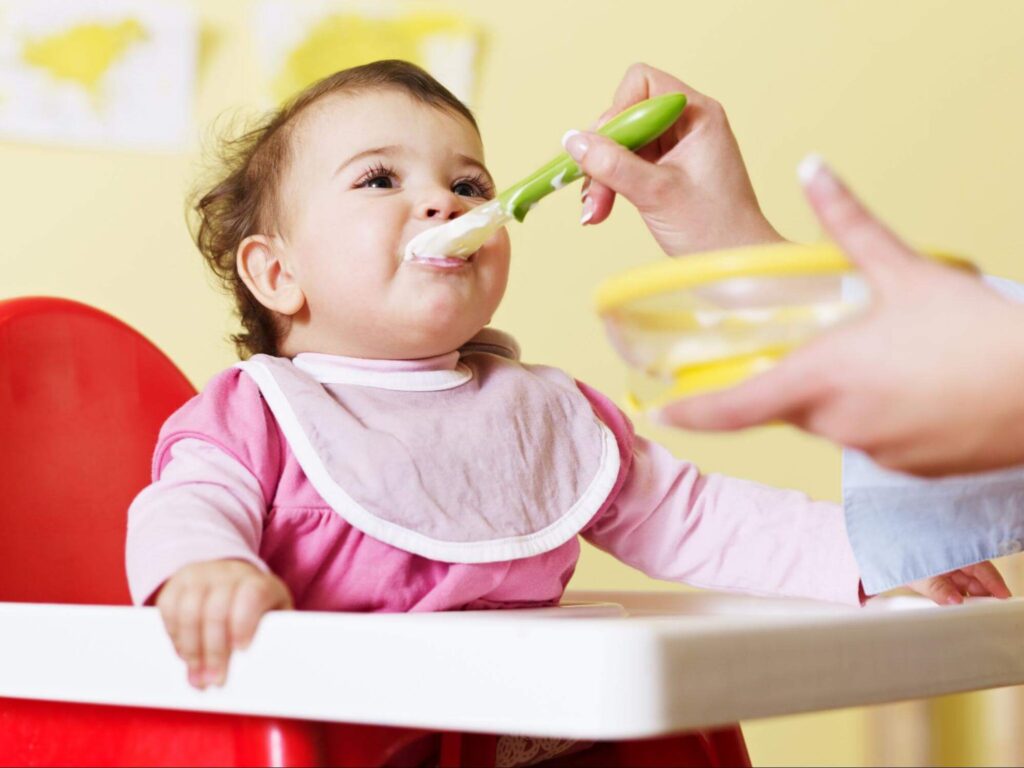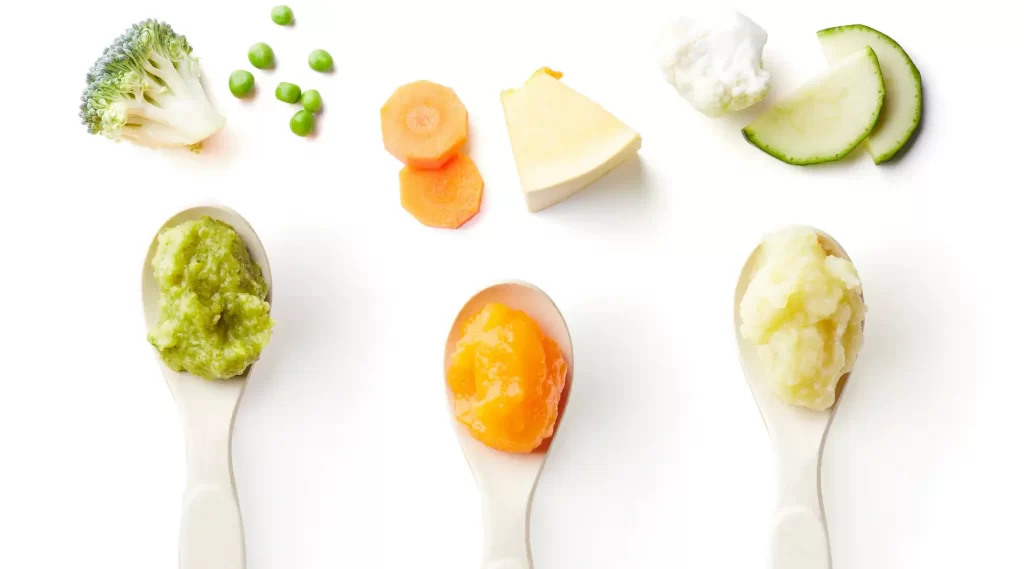In the Dr Golly Sleep Program I recommend introducing solids around the four month mark has a number of benefits.
Firstly, it can take several weeks of practice before your baby is confidently taking decent volumes of solids at each meal, meaning it could be a while before they’re taking in enough calories to provide adequate energy to last the night.
Secondly – international allergy guidelines point to strong evidence that we can reduce the lifetime risk of allergies by introducing common allergens (triggers) in a window between 4 to 6 months. So delaying solids has the potential to increase the chances of having allergies to things like nuts, eggs or fish.
Signs your baby is ready to start solids include:
- more frequent night waking and catnapping during the day
- your baby watching you more intently when you are eating and seeming more interested
- reaching for food as you try to eat
- putting objects in their mouth more often
Babies do NOT need trunk control (ie: sitting independently) to be able to start solids, only need head control and can be safely fed in a ‘fitted’ high-chair, bouncer, parent’s lap, etc.
Remember, solids at this stage are considered ‘complements’ to milk, not replacement. The breast milk or formula is still the most important part of their nutritional intake so it is an opportunity for baby and parents to learn about different smells, textures and flavours.
FAQ: Doesn’t the World Health Organisation (WHO) recommend exclusive breastfeeding for 6 months?
ANS: The Dr Golly Sleep Program aligns with The Australasian Society of Clinical Immunology and Allergy (ASCIA) in recommending no solids prior to 4 months.
The WHO guideline was projected to save more than 820,000 infant lives annually – an incredible figure, but this is in 3rd world countries, where it’s necessary to take into consideration whether there is access to clean water for solids preparation.
Infants differ in the age they are ready for solids, and every breastfeeding mother differs in the amount of milk able to be produced.
This is why it’s important to look for signs of readiness/hunger in your baby, not a specific age.
Learn more about this topic see my blog: Purees Vs Baby Lead Weaning here
Learn more about the Dr Golly Philosophy here.
Shop the Dr Golly age appropriate routines here.

